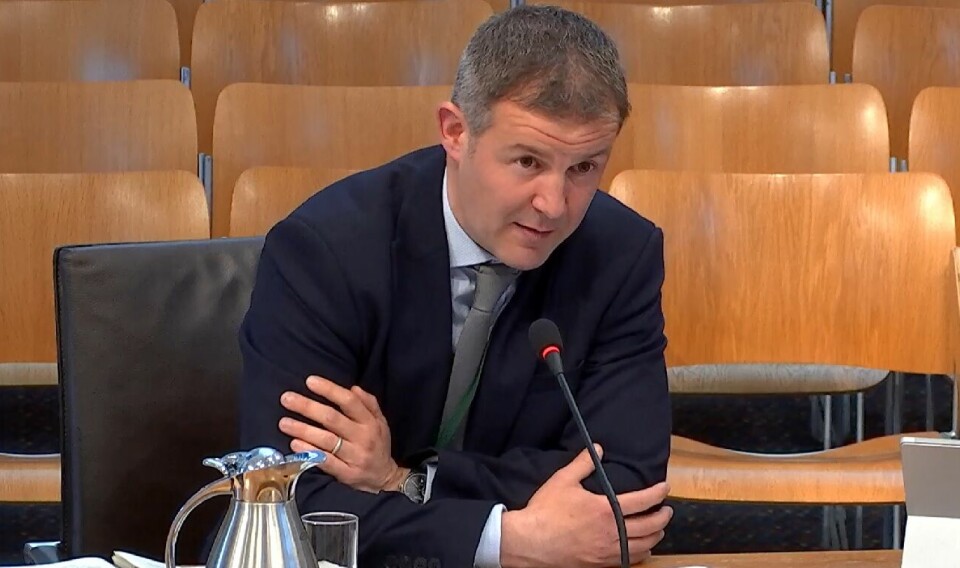
Faster fish farm permitting process to be trialled in Scotland from July
A pilot version of a streamlined consenting process for new Scottish salmon farms is likely to be trialled from July, MSPs have been told.
And “real progress” has made in improving relations between different stakeholders involved in deciding whether to approve new sites, Scottish Government official Malcolm Pentland said.
Salmon producers have long complained about the length of time it takes to gain permission for a new site, and a Scottish Government-commissioned report by regulatory expert Professor Russel Griggs last year recommended changes to simplify and speed up the process.
In his report, Griggs said: “The degree of mistrust, dislike, and vitriol at both an institutional and personal level between the industry (mainly finfish), certain regulators, parts of the Scottish Government and other stakeholders is at a level that I have never seen before which makes the current working relationships within the sector challenging.”
Change for the better
Pentland, the Scottish Government’s lead for the marine economy and communities, yesterday told Holyrood’s Rural Affairs and Islands Committee that the formation of the Scottish Aquaculture Council and the Consenting Task Group (CTG) to follow up on Griggs’ recommendations had helped heal the rifts.
The CTG is chaired by sustainable ocean management consultant Dickon Howell and includes representatives from three salmon farmers – Scottish Sea Farms, Bakkafrost, and Mowi – and the British Trout Association, along with those from the Scottish Environment Protection Agency (SEPA), Crown Estate Scotland, and local authority planning.
Various Scottish Government areas - aquaculture policy, environmental quality and resilience policy, planning policy, Marine Scotland licensing operations team, Fish Health Inspectorate, and improvement advisor – are also represented.
“There has been real progress in that in terms of the stakeholders. We’ve brought them all together – the same stakeholders whom I think Professor Griggs’ report highlighted [had] some real difficulties with relationships and trust,” said Pentland.
“We’ve got those stakeholders coming together, all talking about their perspective on the process, the challenges they face, and importantly we’re thinking about how to come up with solutions together. Over the course of nine months there really has been a change; we have participants there referring to the positive camaraderie within that group where we have SEPA, we have local authority planners, we have government, we have industry.”
Mulilateral engagement
The pilot process is a slightly different approach to the "one-stop-shop" approach used in Norway.
Asked by Western Isles MSP Alasdair Allan whether the streamlined process would enable farmers to make a single consenting application, as suggested in the Griggs report, Rural Affairs Secretary Mairi Gougeon said: “When Griggs was giving evidence to [this] committee, I think he talked about Norway, where they have one person that takes the application and then goes to the other bodies.
“What we’re looking at doing here, and what we’re looking to pilot through the Consenting Task Group, is multilateral engagement right at the start of the process. That involves community engagement as well as all the bodies that would be involved in that, and they’re really keen to take that work forward and pilot it with an application at some point.”
Pentland said the CTG is developing a new blueprint for managing aquaculture applications that effectively is a proposal that allows the existing SEPA CAR (Controlled Activities Regulations) permit and the local authority planning process to run side by side rather than sequentially.
“The next step between now and the end of June is to take that blueprint and turn it into a more detailed draft management framework. At the same time, industry colleagues who are involved in that are looking to identify sites where that can then be trialled, and the intention would be to begin live trialling in early July.”






















































